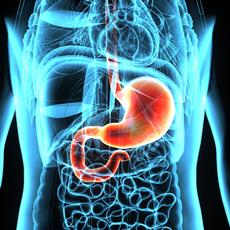
Stomach Flu

Summary
What is gastroenteritis?
Gastroenteritis is an inflammation of the lining of the stomach and intestines. The main symptoms include vomiting and diarrhea. It is usually not serious in healthy people, but it can sometimes lead to dehydration or cause severe symptoms.
What causes gastroenteritis?
There can be many different causes of gastroenteritis:
Viral gastroenteritis is the most common type. It can be caused by many different viruses, including noroviruses and rotaviruses. Some people call viral gastroenteritis the “stomach flu.” But this name is not medically correct. It is not caused by flu viruses. The flu is a respiratory infection that affects your nose, throat and lungs.
When gastroenteritis is caused by consuming foods or drinks contaminated with viruses, bacteria, parasites, or chemicals, this is called food poisoning.
The viruses, bacteria, and parasites that cause gastroenteritis can also spread from person to person. You could be infected when you touch something that has the germs on it and then touch your eyes, mouth, or nose.
What are the symptoms of gastroenteritis?
The symptoms of gastroenteritis include:
Gastroenteritis is usually not serious. But it can sometimes cause lead to dehydration or cause severe symptoms. Certain people are at higher risk for these problems. They include:
- Pregnant women
- Older adults
- People with weakened immune systems or other serious health conditions
- Infants
- Babies who were born prematurely or have other health conditions
If you or a family member are at higher risk and have symptoms of gastroenteritis, contact a health care provider right away.
Even if you are not at high risk, it is possible to become dehydrated or have more serious symptoms. There are some warning signs to watch for. It’s important to contact a provider right away if you or your child have any of them:
- For adults, they include:
- Change in mental state, such as irritability or lack of energy
- Diarrhea lasting more than 2 days
- High fever
- Vomiting often
- Six or more loose stools in a day
- Severe pain in the abdomen (belly) or rectum
- Stools that are black and tarry or contain blood or pus
- Symptoms of dehydration, such as thirst, dry mouth, headache, dark-colored urine, and urinating less than normal
- For infants and children, they include:
- Change in the child’s mental state, such as irritability or lack of energy
- Diarrhea lasting more than a day
- Any fever in infants
- High fever in older children
- Frequent loose stools
- Vomiting often
- Severe pain in the abdomen (belly) or rectum
- Signs or symptoms of dehydration, such as thirst, dry mouth, urinating less than usual or no wet diapers for 3 hours or more, and no tears when crying
- Stools that are black and tarry or contain blood or pus
How is gastroenteritis diagnosed?
To find out if you have gastroenteritis, your provider:
- Will do a physical exam
- Will ask about your symptoms
- May do tests of your stool
What are the treatments for gastroenteritis?
Usually, people with gastroenteritis get better on their own, with rest and plenty of fluids and electrolytes. Your provider may suggest that you take a probiotic. Studies suggest that some probiotics may help shorten a case of diarrhea.
People with more severe symptoms may need medicines to control nausea or vomiting. Providers may also give other medicines for certain types of gastroenteritis, such as antibiotics for some bacterial types and antiparasitic medicines for some parasitic types.
Can gastroenteritis be prevented?
Gastroenteritis cannot always be prevented. But proper hand washing, cleaning surfaces that may be infected with germs, and safe food preparation may help prevent some of the infections that can cause gastroenteritis. There are vaccines for infants to protect against rotavirus infections.
NIH: National Institute of Diabetes and Digestive and Kidney Diseases
Source: MedlinePlus, National Library of Medicine.
Information pulled from the Gastroenteritis page.
MedlinePlus brings together authoritative health information from the National Library of Medicine (NLM), the National Institutes of Health (NIH), and other government agencies and health-related organizations.
Viral Gastroenteritis ("Stomach Flu")
National Institute of Diabetes and Digestive and Kidney Diseases
Viral Gastroenteritis (Stomach Flu)
Mayo Foundation for Medical Education and Research
Bacteria Culture Test
National Library of Medicine
Stool Tests
Nemours Foundation
Gastroenteritis: First Aid
Mayo Foundation for Medical Education and Research
Listen to our
latest Podcast!





